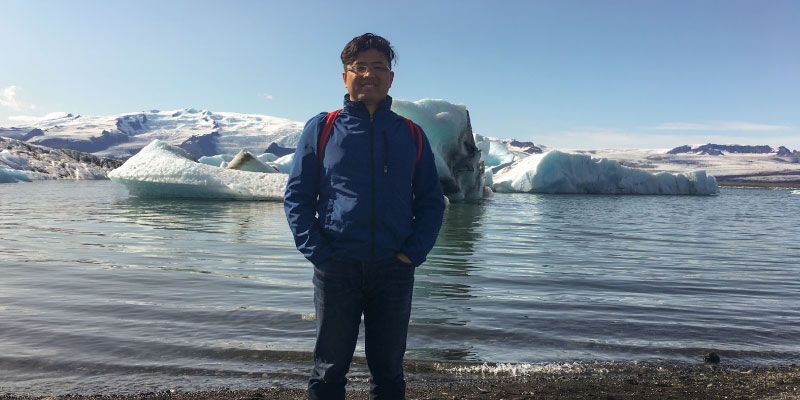
Step right up, folks, and meet a climate psychic!
Feng He is a senior scientist within the Nelson Institute’s Center for Climatic Research (CCR) where he uses past climate data to make informed predictions about future projections. He leads the Transient Climate Simulation Lab where his work predicts reliable climate outcomes based on past data and current variables. These predictions help inform stakeholders of what is to come, from which we can take action to improve our future.
What is your goal in climate modeling?
As a climate modeler, my goal is to make sure climate projections are high quality and can be validated. The problem with future projections is that there’s no data from the future for model validation. So, instead of trying to predict the future, I focus on the climate of the past, and check whether the models used for future climate projections can reproduce the climate of the past.
It’s a very simple idea. We run a climate model simulation for the past 20,000 years and then continue the simulation for another 300 years into the future. If the simulation continuously shows good agreement with climate trajectories from the past 20,000 years based on data from ice core, ocean sediments, lakes, and past animal and trees, we’ll have a high confidence level on the climate projection of the next 300 years.
Does this mean you can tell the future?
Everyone wants to tell the future. The power of prediction is very important because it guides our actions. The climate always changes, but the main problem right now is that it’s just too fast, and it’s making it very hard for society to adapt. We know what’s going on right now, but we don’t know the rate of change very well, particularly for the polar areas of our world. It just changed, and we need data over a long period of time to predict the future. It’s an interesting time for me as I can connect my research of the past to the global warming problem of the present and then apply that toward future projections.

What is the Transient Climate Simulation Lab? Any research highlights you would like to share?
Our slogan is: “Understanding and reproducing past continuous climate changes for more reliable projections of future climate change.” Right now, we’re considering the climate tipping point, essentially abrupt climate changes. We emphasize continuously modeling climate changes because if we just do a snapshot, it won’t show how rapidly the climate is changing.
One area to highlight from the Climate Simulation Lab is our research work on Atlantic Overturning Circulation. Basically, the popular idea is that melting of the ice sheet causes fresh water to move into the ocean which will then slow down the circulation of the Atlantic. This connection seems so reasonable as fresh water will reduce the surface density and make the water harder to circulate. The only problem is that this is not supported by the climate data of the past. In addition, our climate model can achieve a better simulation of the past without this connection.
Any advice to students who hope to work in your field?
Climate science is really interdisciplinary. If you have broad interests as a student, then you can build your interdisciplinary toolbox and use problem solving techniques from other disciplines to help you in your niche area of study. I would also emphasize the social science part of climate change. To find a solution for global warming, we must educate people on climate change which will then lead to meaningful action.
What do you want the public to know about your work?
In my discussion with the public about my work, I try to emphasize my goal of using climate models is to reproduce the past, so we have higher confidence for future projections. When people hear we need to act against climate change, they might be skeptical. But when I tell them I’m trying to improve the model for future projections, even climate skeptics respect my work.